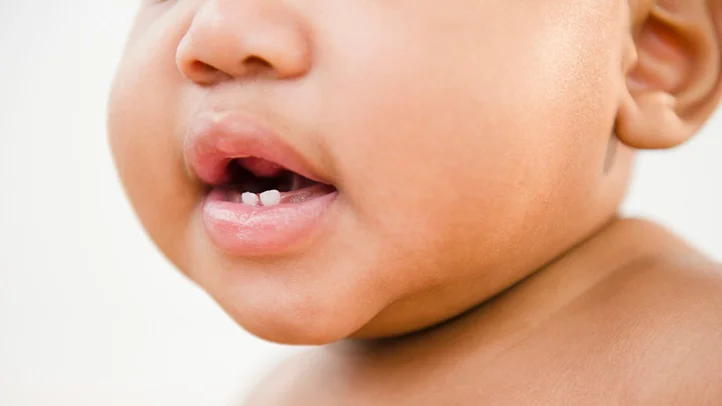Introduction
Baby teeth, also known as primary or deciduous teeth, play a crucial role in a child’s development. They aid in chewing, speaking, and creating space for permanent teeth. Understanding their growth, care, and common dental issues can help parents ensure a healthy foundation for their child’s oral health.
Baby Teeth Development and Eruption Timeline
Baby teeth start forming in the womb and usually begin to emerge between 4 to 7 months of age. Here’s a general eruption timeline:
- 6–10 months: Lower central incisors
- 8–12 months: Upper central incisors
- 9–13 months: Upper lateral incisors
- 10–16 months: Lower lateral incisors
- 13–19 months: First molars
- 16–22 months: Canines (cuspids)
- 25–33 months: Second molars
By the age of 3, most children will have a complete set of 20 baby teeth.
Teething Symptoms and How to Soothe Discomfort
Teething can cause discomfort and irritability in babies. Common symptoms include:
- Excessive drooling
- Irritability or fussiness
- Biting or chewing on objects
- Swollen or tender gums
Ways to soothe a teething baby:
- Use chilled (not frozen) teething rings
- Massage gums gently with a clean finger
- Offer a cold, damp washcloth for chewing
- Consult a pediatrician before using pain medication
Importance of Early Oral Hygiene
Oral care should begin even before teeth appear. Establishing a routine early helps prevent dental issues later on.
- Before teeth: Gently wipe gums with a clean, damp cloth
- After teeth emerge: Use a soft-bristled toothbrush and a rice-sized amount of fluoride toothpaste
- Avoid bottle decay: Don’t let your baby fall asleep with a bottle of milk or juice
Common Baby Dental Issues and Prevention
1. Baby Bottle Tooth Decay
Prolonged exposure to sugary liquids can lead to early childhood cavities.
- Clean gums after feeding
- Introduce a sippy cup by 12 months
- Avoid sugary drinks at bedtime
2. Thumb-Sucking and Pacifier Use
While normal in infancy, excessive thumb-sucking or pacifier use past age 3 can cause alignment issues.
- Encourage gradual weaning
- Reward your child for not sucking their thumb
3. Delayed Tooth Eruption
If no teeth have emerged by 12–14 months, consult a pediatric dentist for evaluation.
Transitioning from Baby Teeth to Permanent Teeth
Baby teeth usually begin falling out around age 6. The process continues until around age 12, when most permanent teeth have replaced the baby teeth.
- Teach proper brushing and flossing
- Ensure a diet rich in calcium and vitamin D
- Visit the dentist every 6 months
When to Visit a Pediatric Dentist
The first dental checkup should be by the age of one, or within six months after the first tooth erupts. Consult a pediatric dentist if you notice:
- Ongoing tooth pain
- Spots, discoloration, or cavities
- Misaligned, crooked, or extra teeth







